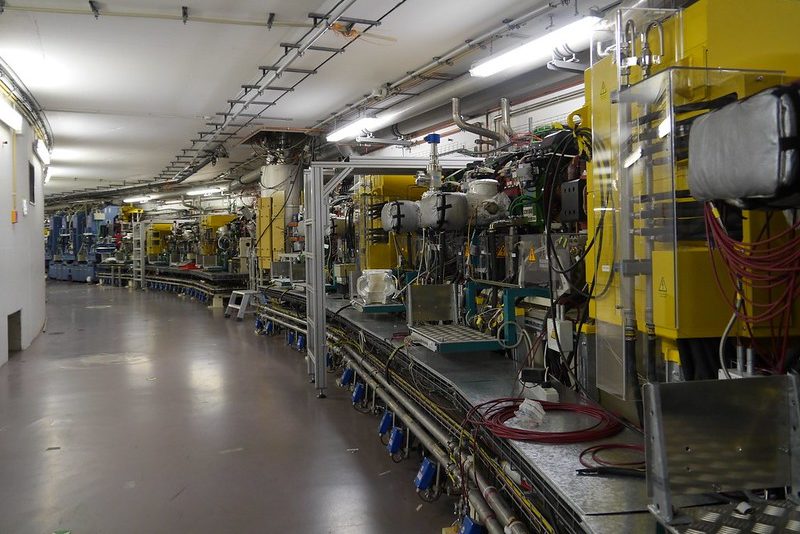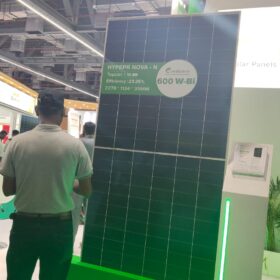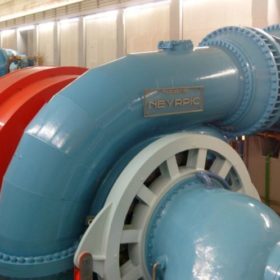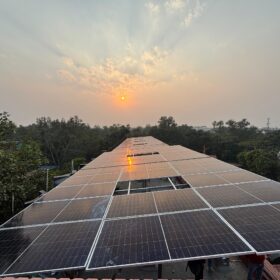From pv magazine International.
MXenes, a class of two-dimensional material first discovered in 2011, is an emerging area of interest among energy storage scientists.
Though the investigation of MXene materials is still in its early days, in the energy storage field such materials have shown the potential to act as “pseudo capacitors”, combining the large energy storage capacities of lithium-ion batteries with the speedy charge and discharge times associated with supercapacitors.
Scientists at Helmholtz Zentrum Berlin (HZB) investigated titanium carbide-based MXene Ti3C2Tx at the BESSY synchrotron facility in Berlin using soft X‑ray absorption spectroscopy to analyze samples of the material in a vacuum and in a water solution. The analysis showed intercalating urea molecules into the MXene brought about significant changes to the material’s electrochemical properties.
Findings
The results were reported in the paper Enhancement of Ti3C2 MXene Pseudocapacitance after Urea Intercalation Studied by Soft X-ray Absorption Spectroscopy, published in The Journal of Physical Chemistry C.
The MXene materials which included urea molecules exhibited an area capacity of 11 millifarads/cm², which the HZB said is 56% higher than that demonstrated by the pristine MXene samples. The increase was attributed to changes in the surface chemistry brought about by the presence of urea.
“We could also observe the oxidation state of the Ti [titanium] atoms on the Ti3C2Tx MXene surfaces by using X-PEEM [an experimental station at the synchrotron facility],” said Ameer Al-Temimy, lead author of the paper. “This oxidation state was higher with the presence of urea, which may facilitate to store more energy.”
This content is protected by copyright and may not be reused. If you want to cooperate with us and would like to reuse some of our content, please contact: editors@pv-magazine.com.









By submitting this form you agree to pv magazine using your data for the purposes of publishing your comment.
Your personal data will only be disclosed or otherwise transmitted to third parties for the purposes of spam filtering or if this is necessary for technical maintenance of the website. Any other transfer to third parties will not take place unless this is justified on the basis of applicable data protection regulations or if pv magazine is legally obliged to do so.
You may revoke this consent at any time with effect for the future, in which case your personal data will be deleted immediately. Otherwise, your data will be deleted if pv magazine has processed your request or the purpose of data storage is fulfilled.
Further information on data privacy can be found in our Data Protection Policy.